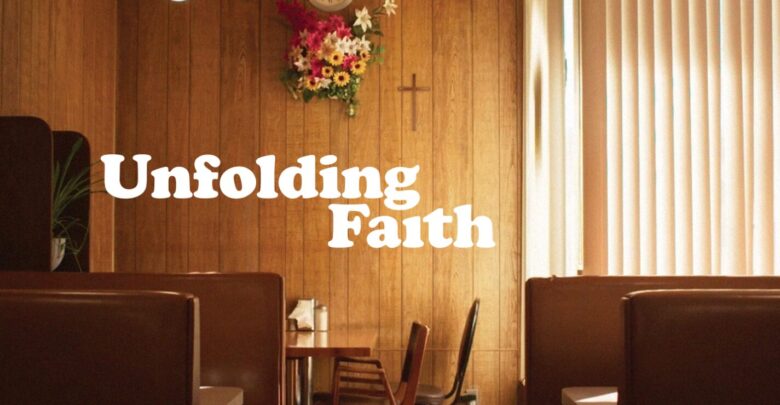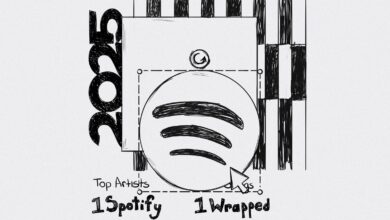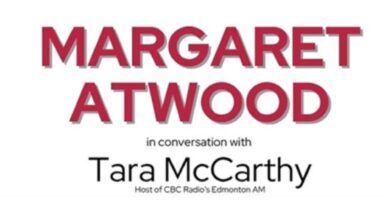‘Unfolding Faith’ is calling for nuanced conversations
Elyse Bouvier's film is looking to create understanding between those of faith, and those without.
 Supplied
SuppliedElyse Bouvier’s Unfolding Faith tackles finding common ground within her interfaith family after her father, a former pastor, and her, leave Christianity.
“It’s a really personal project,” Bouvier said. “It’s a memoir-esque, point of view film about myself and my family. And the challenging conversations we had after my dad left Christianity, and then later when I left as well,” she explained.
Originally, she only looked to tell her father’s story of leaving the church. He was a pastor in small towns around Alberta like Rocky Mountain House and Drayton Valley. Later, he became an atheist. “I thought it would be really interesting to explore his story from his daughter’s perspective,” she said.
But as she began the film making process, “it became really apparent that it was a lot more about the family and a lot more about me and my relationship with my parents,” she explained.
Bouvier agreed that topically, there is a lot of relevance to Alberta. “The reason I think it is so relevant in Alberta is because Alberta is so divisive. One of the things I really wanted to represent was people who have left fundamentalist religion, Christianity mainly, and give a voice to what that struggle looks like, especially in familial relationships,” she said.
In tackling the topic, Bouvier said that she wanted it to be something both ends of the religious spectrum could relate to. While her and her father have left the faith, her mother is a devout Christian. “It’s a very soft film. I didn’t want it to be anti-religious. I wanted to make sure that my mom felt represented in it and she was really happy with it in the end. And that was really important because I didn’t want a film that was causing more division,” she said.
“When you change your identity … how does that change your relationship with your family?” Bouvier says
She also wanted to explore the identity issues surrounding a loss of faith and the exiting from the church. “It gets at this identity issue of who you are when you’ve left the belief that you grew up with. And it doesn’t necessarily mean religious beliefs, but when you change your identity and you deconstruct something you grew up with, how does that change your relationship with your family? And the other question is, can you maintain a relationship with your family?” She explained.
“There’s a real untangling that happens with how much of your identity is tied to these things that you really believed to be true before,” she added.
Creating the film gave Bouvier more confidence in her “unbelief.” And, it allowed for a conversation to clarify where the boundaries are to be set between her and her mother. The conversations Bouvier has with her mother in the film she said, are less about getting answers, but more about understanding who her mother is as a person.
“I say in the film that there’s things that we can’t talk about because we’re never going to agree on them,” and she said her mother agreed. “So we didn’t want to talk about those things on film because we don’t need to.”
Despite leaving some topics out of the conversation, Bouvier said there are still some “hard pieces that come out. Like, I don’t believe in hell, but my mom believes I’m going there. Those things aren’t easy.”
“We need community now more than ever,” Bouvier says
She said that with her dad, the conversations were different since he’s also left religion. While they’re close, there’s some things they don’t agree on and the two are different in a lot of ways.
Bouvier wanted to push for more understanding between those of faith, and those without. “With the release of the film and leading up to it, there’s been so many conversations that I’ve had with people to push back against black and white thinking. And [it started] to get into that kind of messy middle, those really hard and complicated conversations. Because, we need community now more than ever,” Bouvier said.
The choice of medium is in part due to this as well. Bouvier’s main artistic medium is photography, but to allow for other perspectives in the project, she chose film, allowing those within to speak for themselves. “It’s still very much from my point of view, but hearing my mom say those things on her own, in her own voice, and hearing my dad in his own voice, [adds] layers of texture,” she explained.
Since the film’s release on October 16, Bouvier said that there has been a lot of good feedback from both religious and non-religious audiences. “And those are the communities that I wanted to speak to … When we set out to make the film, I was mainly making it for similar people. Millennials who have left religion,” Bouvier said.




